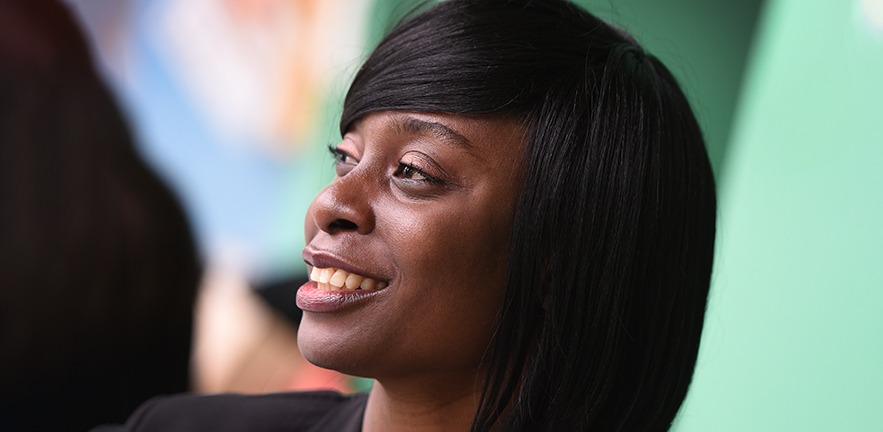The Executive MBA programme at Cambridge Judge Business School, now in its 13th year, has since 2008 welcomed hundreds of women from all over the world to a 20-month programme that provides the flexibility for people to continue in their careers while earning their MBA degree. Many of these women continue at their current organisations, often in more senior roles, while others change jobs, sectors or geographies using the knowledge and networks gained through the EMBA. Video interviews with several recent women EMBA graduates are posted on our website, which also features various articles about our women students and alumna.
Below are edited excerpts (with links to the full articles/profiles) about some of these EMBA women recently featured on our website, whose careers span sectors including finance, property, the public sector, technology and the arts:
Finance

Ling Hua (EMBA 2019): Investment Manager, Changsheng Fund Management, a Chinese mutual fund. “I started my career as a management trainee at Ford Motor Company between 2005 and 2008. I made the transition to the financial sector in 2010, when I worked as an analyst at an insurance company specialising in risk management, and after that I moved into equity research and asset management. My undergraduate university in Zhejiang is sometimes called the ‘Cambridge of the East’, so I appreciate now having the opportunity to study at the real University of Cambridge! It’s been a dream of mine since childhood. Cambridge Judge Business School’s emphasis on international business is important for me. I work primarily with Hong Kong and US markets, so exposure to European markets, amongst others, is an opportunity I am seizing. I’m also keen to gain a wealth of international business contacts through my peers and the alumni network.”
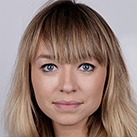
Megan Jones (EMBA 2019): Head of Strategy and Development, EMEA Funds Practice, law firm White & Case. “Moving from a traditional legal role into a broader, more commercially focused position has meant tackling a host of new challenges and building new areas of expertise, some of which I was initially unfamiliar with. The Executive MBA felt like the perfect degree to support me in this transition. I was, above all, seeking exposure to new ways of thinking, and to do that I knew I had to seek out professionals working in different fields and geographies. The structure of the programme appealed to me. I felt the balance of contact time at the University, together with personal study, group assignments and individual projects would fit well into my professional and personal schedule. It was essential that I could progress in the programme whilst maintaining balance in other aspects of my life, and I think the Cambridge EMBA strikes the right note in this respect.”

Khayala Eylazova (EMBA 2014): Khayala won the Advocate of the Year award at the Women in Finance Award Series 2020. The award recognises leadership in driving diversity, equity and inclusion in the finance, insurance and technology sectors. Khayala’s passion for advocacy has seen her use her platform as Senior Manager at PwC UK Financial Services to co-lead the firm’s DEI initiatives. She founded PwC’s Women in Insurance network and programme, the objectives of which are to improve access to working in the sectors and support the professional development and progression of women in the UK. “A whole new world opened up to me once I started the EMBA. I saw the world full of endless opportunities, and my business education equipped me to go after them fearlessly.”
Property
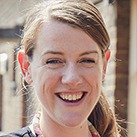
Katharine Hibbert (EMBA 2020): Founder and Director of Dot Dot Dot, a UK real estate social enterprise that turns empty spaces into homes for people who want to volunteer. The venture has housed hundreds of people across the UK, supporting thousands of hours of volunteering every month, providing housing for around half the local cost of rent. “On top of that, we’re providing a useful service for property owners, who need a way to manage buildings which are waiting to be sold, refurbished or regenerated,” she says. “Filling buildings with well-chosen, well-managed people provides reliable, flexible and cost-effective security, so property owners gain commercially from our work, as well as seeing the benefit of our social impact.”
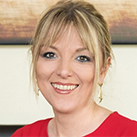
Cristina Savian (EMBA 2016): Founder and Director of consulting firm BE-WISE, with offices in London and Melbourne, which advises companies on better managing our built environment. She has worked in construction and technology for the construction sector for more than 20 years, and describes herself as a “lifelong techie”. “If we are going to fulfil the global demand for housing and infrastructure in times of high demand and low profit margins, we need to innovate. Now more than ever we need to re-think the way we design, build, and operate our built assets. BE-WISE was founded to help companies in the built environment sector to innovate, transform, and ultimately strengthen and improve their processes with a technology and digital-first approach.”
Public sector
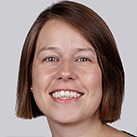
Emma Kent (EMBA 2019): Construction Director, Metropolitan Police Service in the UK, leading a team that plans, co-ordinates and delivers the Met’s programme of capital real estate development projects. “I’ve always sought out opportunities to develop my professional skills and, since moving client-side, my role involves significantly more management and finance, particularly when preparing business cases for consideration by the Mayor of London’s team, so I’m keen to hone my skills in those areas. The Cambridge brand is extremely powerful, so that was a significant factor in my decision. When I attended an information session and the Executive MBA experience day, I found myself thinking the other attendees were people I wanted to learn from and with. I felt at home when I visited Cambridge Judge Business School and knew it was a place I would fit in.” Emma recently wrote an article in The Guardian newspaper about gender stereotypes in the engineering sector and what could be done about it.
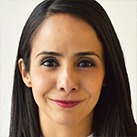
Adriana Robles Coello (EMBA 2020): Head of Campaigns for Latin America and the Caribbean at the UK Foreign, Commonwealth & Development Office. From Mexico, Adriana has been involved in a range of projects that made positive impacts in her country and around Latin American and the Caribbean, including work on supporting COVID-19 repatriation flights and tailoring the UK’s communication response to its departure from the EU. “I wanted to join a first-rate programme that could give me exposure to new ways of thinking. I knew that Cambridge Judge would offer me an authentic global experience and allow me to learn with and from high-calibre colleagues coming from different industries and backgrounds. As I’m from Mexico City, the flexibility of the programme structure fits well with my working schedule and personal life.”
Technology
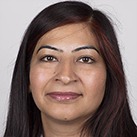
Mandeep Saini (EMBA 2019): Head of Software Development, GÉANT. A software engineer by trade, she enrolled in the EMBA programme “to sharpen my business skills across a range of areas and deepen my understanding of today’s global business practices. I’m also keen to learn from the experiences and perspectives of my fellow participants, who are leaders in their respective industries. The Cambridge Executive MBA is renowned for attracting diverse cohorts, which was incredibly important to me when choosing a business school. I was fortunate to land a job in the perfect organisation for me straight out of university, so my exposure to different industry sectors is limited. Interaction with the cohort will help me fill this gap. I was also attracted by the opportunity to return to Cambridge to take an elective of my choice every year, which allows me to keep abreast of the latest research and thinking, and continue my professional development throughout my career.”
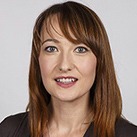
Becky Cotton (EMBA 2015): Becky, former Director of Mental Health Policy for the NHS Confederation, founded women’s mental health startup Lumino, which recently received a £100,000 UK government grant from Innovate UK’s Sustainable Innovation Fund. Lumino is Becky’s vehicle for developing and delivering quality mental health support for women. “The future of mental health is digital,” says Becky, who grew up in Wales and now lives and works in London. “So many people around the world experience poor mental health, or might be struggling in some way, and can’t access the help they need. It’s only by using technology we are going to be able to bring better support to people that need it.” The new funding will allow Lumino to focus on the research and development phases of its DTx interventions, and take it into a rigorous evaluation phase that will see cohorts of women test the products to measure outcomes.
Arts and creativity

Fagun Thakrar (EMBA 2019): Founder of the Creatively Inspired Life Foundation, a not-for-profit focused on helping young people through the power of creativity. Through a network of creative professionals based around the world, the Foundation delivers arts-oriented, multi-disciplinary workshops that span the visual, literary, and performing arts. “The Creatively Inspired Life Foundation has a three-fold approach: community programmes, mentoring programmes, and institutional outreach programmes.” Fagun, who has been active in screen and stage acting for many years, launched the Foundation in 2017 and enrolled in the EMBA programme in 2019. “As the work I do expands internationally, I wanted to increase my cross-cultural competency and my awareness of diverse global markets. I was being placed in leadership roles within organisations and so wanted to develop critical leadership skills that would enable me to grow and progress in my fields.”
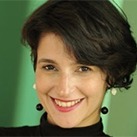
Vanessa Marcié (EMBA 2016): CEO of Leading With Humour, a management and capacity-building consultancy, who has written and lectured extensively on the role the lighter side can play in business. Before beginning her EMBA at Cambridge, she was leading marketing and communications project for a French promotions agency while also performing as a stand-up comedian. In a recent article in Harvard Business Review, she said: “Today, in companies, we are increasingly required to promote innovation and solve problems creatively. But to express their creativity, employees must have the freedom and psychological security necessary to share their ideas. An environment of relaxation and entertainment where employees and employers demonstrate a certain sense of humour encourages creativity.”


